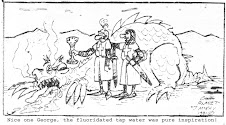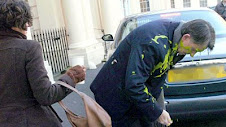The First Thousand Days was the title of an excellent BBC Radio Four programme which looked at the effects of the environment and Diet on infants and their development. The seeds of illnesses are apparently planted and nurtured both in the womb and during infant development which may not show for many decades.
Dr Mark Porter talks
ed to the scientists who now believe that this 'lifecourse' approach, will find the cause of many adult diseases. "Chronic disease is going up in leaps and bounds, this is not a genetic change" says Kent Thornburg, Professor of Cardiovascular Medicine in Oregon, America "it's because the environment in the womb is getting worse. We know now that the first 1000 days of life is the most sensitive period for determining lifelong health'. Our diet and environment are undoubtedly increasingly full of crap and toxins and this toxic cocktail of influences.
Fluoride is undoubtedly one of the most toxic of chemicals and just as breast milk appears to filter out a great deal of fluoride, then the placenta should also be shielded from as much fluoride as it can. The effects of such chemicals may not show fully untill the adults 50s or 60s. Of course if an adult leads a moderate lifestyle he or she may still live to a good age but continuing to take dangerous chemicals into the adult system can only do yet more damage. Of course if adults choose to take fluoride, that is their business but infants and young people are not given such choices or properly educated about the real dangers of fluoride. It seems like only common sense to me that expectent mothers and fathers, and infants should steer well clear of these poisons. Fluorides, whether naturally occuring or manufactured as the result of various industrial processes are both poisonous and they should have no place in the human diet, rather than wasting money on this dangerous. unethical and illegal poisoning of people adding fluorides to people should be replaced by spending money on removing such chemicals at source.











No comments:
Post a Comment